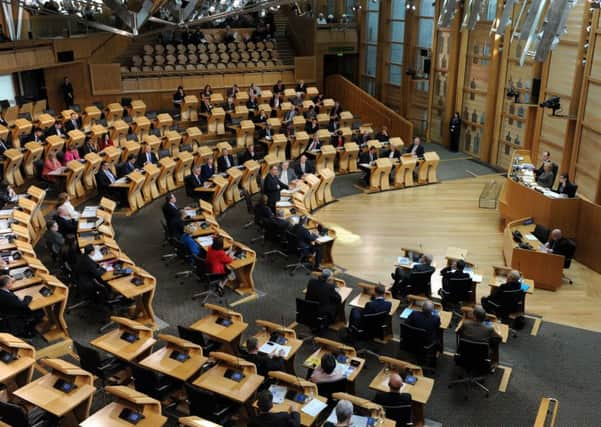Andrew Henderson: Don't fall foul of new lobbying law
This article contains affiliate links. We may earn a small commission on items purchased through this article, but that does not affect our editorial judgement.


No longer a new institution, Holyrood has now passed more than 250 Acts of Parliament, played host to five First Ministers and seen as many Presiding Officers occupy the parliament’s figurehead role.
• READ MORE: Politics news
Incrementally, the powers of Scotland’s devolved institutions have grown significantly from those originally laid out in The Scotland Act 1998.
Advertisement
Hide AdAdvertisement
Hide AdIt will have passed few by that the politics of the country have shifted fundamentally too during this time. Holyrood’s horseshoe Debating Chamber stands as a largely forgotten emblem of the type of politics to which the institution aspired, back in the day.
Despite seismic political shifts and a growth in policy purview, the actual operations of the parliament itself and the mechanics of how its members and those in government interact with the wider world, have not changed greatly. That change is in the post though, with incoming laws imposing strict transparency rules which will govern the interaction between outside organisations and MSPs, special advisers and other senior government figures.
Whilst rules relating to lobbying of the Westminster government have been in place for almost two years, these are limited in scope when compared to the Lobbying (Scotland) Act 2016. This new law will apply to almost all organisations and individuals who interact with elected members of the Scottish Parliament and senior government officials.
Many organisations and individuals in their employ, who may never have before considered their work to encompass “lobbying”, will be captured under the Act. Under the new rules, organisations such as businesses, charities, trade bodies and professional associations will all have to record, on a publicly viewable register, details of any face-to-face meetings held with ministers, MSPs, special advisers and the Scottish Government’s Permanent Secretary.
Detailed guidance on how the rules will operate will be published soon, with a trial period planned to commence this autumn. Thereafter, the new regime is due to be implemented in full during the first quarter of 2018.
As awareness of the new rules grows, questions will abound over what actually constitutes “lobbying”. To answer these, five tests are likely to apply.
First, a communication must take place with one of the aforementioned individuals. Second, this must be made orally – in person or via video conference (telephone calls, email and written communications are not in the scope of the Act). Third, the communication must relate to government or parliamentary functions. Fourth, the communication must be undertaken in return for payment (the definition of payment is broad – an employee’s salary would count, effectively bringing all paid staff into scope). Fifth, it must not be subject to one of a number of exemptions as set out in the Act.
Advertisement
Hide AdAdvertisement
Hide AdExemptions will excuse a number of categories of contact from the disclosure rules. For example, communications taking place at the premises of the business or the organisation in question, with the relevant constituency MSP (though not with ministers), will not be registerable.
Similarly, communications made at the request of the MSP or other relevant party do not require a submission to be made, and organisations with fewer than ten employees are also exempted (unless one of the employee’s principal purposes is to represent the interests of other persons).
However, now enshrined in law, compliance with the new register will not be optional. Indeed, an ultimate sanction of three months imprisonment for refusal to comply with an investigation may focus minds.
Organisations should set to work now to ensure they have the systems in place to comply with the new regime.
Andrew Henderson is director of public policy at legal firm Pinsent Masons